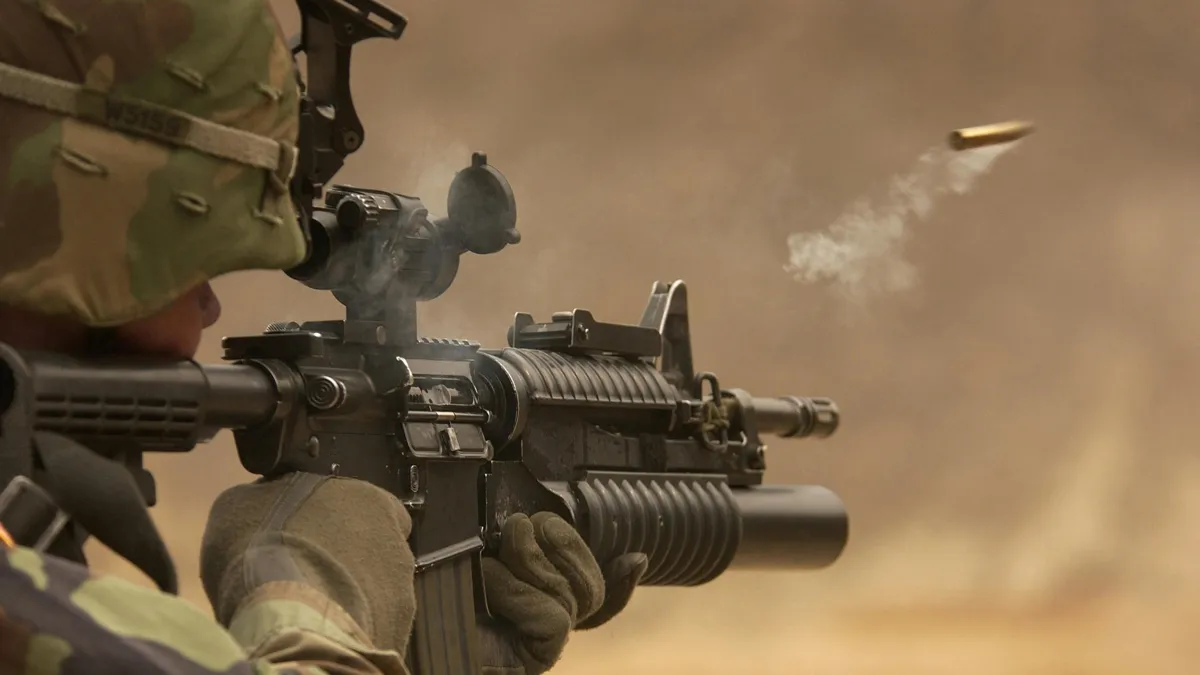What Europe Can Learn From Israel’s Defense Industry
While European leaders are finally recognizing the twin threats of weak defense and lagging growth, they seem to be responding to the security challenge with more urgency

LONDON — Europe is finally responding to the twin threats posed by its weak defense and lagging growth. Now, the continent must link its security and economic objectives and approach them in a manner that prioritizes speed over perfection.
As Europe begins its rearmament, it should follow the example set by Israel, where the military has fueled high-tech innovation and human-capital development. And if the threat of conflict with Russia intensifies, the European Central Bank may need to provide additional finance — with some important guardrails in place.
Precipitating this monumental policy shift was Donald Trump’s return to the White House. The new administration’s apparent willingness to withdraw the United States’ security umbrella from Europe has heightened the threat posed by Vladimir Putin’s neo-imperial Russia, with its numerous frozen conflicts in former Soviet republics and its ongoing war of aggression in Ukraine.
Moreover, the «America First» agenda has provided an impetus for the European Union to address its competitiveness problem, which Mario Draghi identified in his 2024 report on the topic. When presenting his findings, Draghi warned that if the bloc did not close its growing productivity and innovation gaps with the US and China, it would face «slow agony.»
While European leaders recognize both threats, they seem to be responding to the security deficit with more urgency. But Europe’s survival depends on addressing its economic decline with the same resolve and, importantly, tying these efforts together. In other words, the defense sector should drive European growth.
Among the many attempts by governments to link military and economic development — some more successful than others — Israel may provide the most instructive example. Since its founding in 1948, Israel has, by dint of its geopolitical environment, had to focus its economic policy on defense, producing an impressive defense-development nexus. Following an early period of state-led military industrialization and rapid infrastructure construction, Israel became a «startup nation, ” where spillovers from military projects and institutions fuel high-tech innovation and human-capital development throughout the economy.
The Israeli government’s strategy involves huge defense spending, particularly large subsidies for high-tech companies’ research and development, together with significant investment in dual-use goods (with both military and civilian applications). Defense procurement rules require a meaningful share of domestic components; state programs bridge the defense and tech sectors; and trade policies make the defense industry an engine of export-led growth.
Equally important, the country’s military service — which is compulsory for most Jewish Israelis — has promoted the diffusion of high-tech innovation in civilian life. Some 90% of Israel’s high-tech employees are veterans — a very high percentage, given that the conscription rate hovers around 50%. This has helped accelerate military-to-civilian knowledge transfers, while also strengthening team building in the tech industry.
To be sure, the conditions in Europe and Israel differ in important respects. First, many EU countries do not have compulsory conscription. But as the Russian threat intensifies, military-service requirements may be reconsidered (such as Poland’s plans to introduce military training for every adult male).
Second, Israel has benefited massively from significant external financing for its military spending, particularly from the US. While Europe cannot expect outside funding for defense (or anything else, for that matter), it does not need it. Domestic savings in the EU are relatively high, particularly in the largest member states.
The EU should oversee the continent’s urgent rearmament to avoid national procurement biases. This would also deepen Europe’s single market, as Guntram Wolff, Armin Steinbach, and Jeromin Zettelmeyer of the Brussels-based think tank Bruegel have argued. But to ensure an immediate, meaningful impact, some national preference or differences should be tolerated at the start. Also, the requirement that every member state contributes «equally» has impeded the EU’s efforts to address earlier threats and must be avoided. Simply put, some countries have more fiscal space or existing capacity to jump-start production.
Given this, Germany — the EU’s largest economy — should be at the center of Europe’s new defense-led economic strategy. It is central to many of the continent’s supply chains and has low public debt and high domestic savings. In any event, the German economy’s ability to shift away from its current dependence on the auto industry and Russian energy will largely determine Europe’s economic fate.
Fortunately, Germany is already rising to the challenge. It has eased its constitutionally enshrined debt brake, exempting defense spending above 1% of GDP. But Germany also suffers from serious underinvestment in digitalization and infrastructure, suggesting that even more ambitious policies are needed.
Of course, Europe’s rearmament hopes do not rest on Germany alone. France, Italy, and Poland have comparative advantages in critical defense subsectors. And some non-EU members, such as the United Kingdom and Ukraine, can make important contributions to these efforts.
The ECB may need to support the continent’s new focus on military-led development — especially if war breaks out — by purchasing sovereign bonds both at the national and EU levels, and by offering permanent currency swaps to non-member states. Such a decision should not be taken lightly, as it will have differential effects on European countries and could influence interest rates.
But central banks were created to finance wars, and have done so ever since. The ECB must therefore get prepared with well-defined procedures for such involvement, including clear rules of engagement and guardrails.
A confluence of economic and geopolitical shocks has awoken Europe to the need to rebuild its defenses and enhance its competitiveness. Now, the continent must recognize that addressing both together offers the best chance to achieve both goals.


